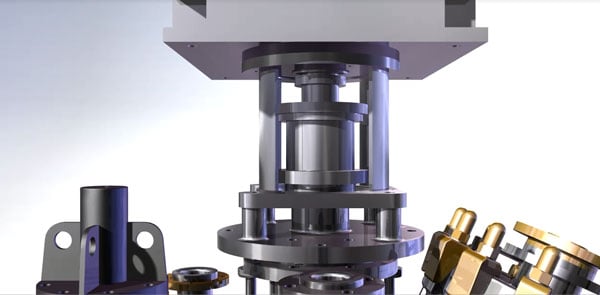Posted At: Apr 05, 2025 - 1,104 Views

What is Agitator Mechanical Seal?
Introduction
In many industrial processes involving mixing, stirring, or blending, agitators play a critical role. To keep operations leak-proof and safe—especially when handling hazardous or high-pressure substances—agitator mechanical seals become essential. This blog covers what is agitator, the working and types of agitator mechanical seals, and their key applications across industries.
What is an Agitator?
An agitator is a mechanical device used to mix or stir liquids and slurries in tanks. It typically comprises a motor, shaft, and impeller. These devices are widely used in the chemical, pharmaceutical, food, and cosmetics industries to ensure uniform mixing of substances.
What is an Agitator Mechanical Seal?
An agitator mechanical seal prevents leakage along the agitator shaft as it rotates in and out of a tank or mixing vessel. Unlike regular seals, agitator shaft seals are engineered to handle the axial and radial loads specific to agitators, ensuring long-lasting performance in aggressive or sterile environments.
Types of Agitator Seals
- Single Mechanical Seal – For non-hazardous and low-pressure applications.
- Double Mechanical Seal – Offers dual sealing for toxic or hazardous fluids.
- Dry-Running Seal – Ideal when external lubrication is not available.
- Gas-Lubricated Seal – Uses inert gas (like nitrogen) for sterile and non-contaminating applications.
Applications of Agitator Shaft Seal
- Chemical Processing – For safely handling volatile substances.
- Pharmaceutical Manufacturing – To meet sterility and hygiene standards.
- Food & Beverage Production – Maintains sanitary conditions and prevents product contamination.
- Cosmetic Mixing – Ensures clean and accurate mixing for creams and lotions.
Why Use Mechanical Seal for Agitator?
Using a mechanical seal for agitator enhances safety, reduces leaks, and cuts maintenance costs. It also improves operational efficiency by reducing downtime and maintaining product integrity, especially in CIP (Clean-in-Place) and SIP (Sterilize-in-Place) processes.
Key Design Considerations
- Operating temperature and pressure
- Agitator speed and shaft size
- Product viscosity and chemical compatibility
- Vertical vs. horizontal agitator mount
- Sanitary requirements (FDA or GMP compliance)
Maintenance & Reliability
Regular inspection, proper installation, and use of OEM (Original Equipment Manufacturer) quality parts ensure longevity. Seals should be monitored for wear, temperature changes, and fluid contamination to prevent unexpected failures.
Conclusion
Understanding what is agitator mechanical seal is key for industries aiming for safe, leak-free, and cost-efficient operations. Whether you're in food production or chemical processing, choosing the right agitator seal ensures compliance, reliability, and quality results. For expert solutions, QMSeals provides high-performance agitator mechanical seals customized to your process needs.
Frequently Asking Questions
1. What is an agitator mechanical seal used for?
It prevents fluid leakage from mixing vessels and maintains hygienic and safe operation.
2. How is an agitator seal different from a regular pump seal?
Agitator seals are designed for varying shaft loads and motion found in mixers, unlike standard rotating seals in pumps.
3. Are agitator seals suitable for hygienic processes?
Yes, especially FDA-compliant models used in food, beverage, and pharmaceutical industries.
4. What types of agitator seals are available?
You can choose from single, double, dry-running, or gas-lubricated mechanical seals.
5. How long do agitator seals typically last?
With regular maintenance, they can last several years depending on operating conditions.


